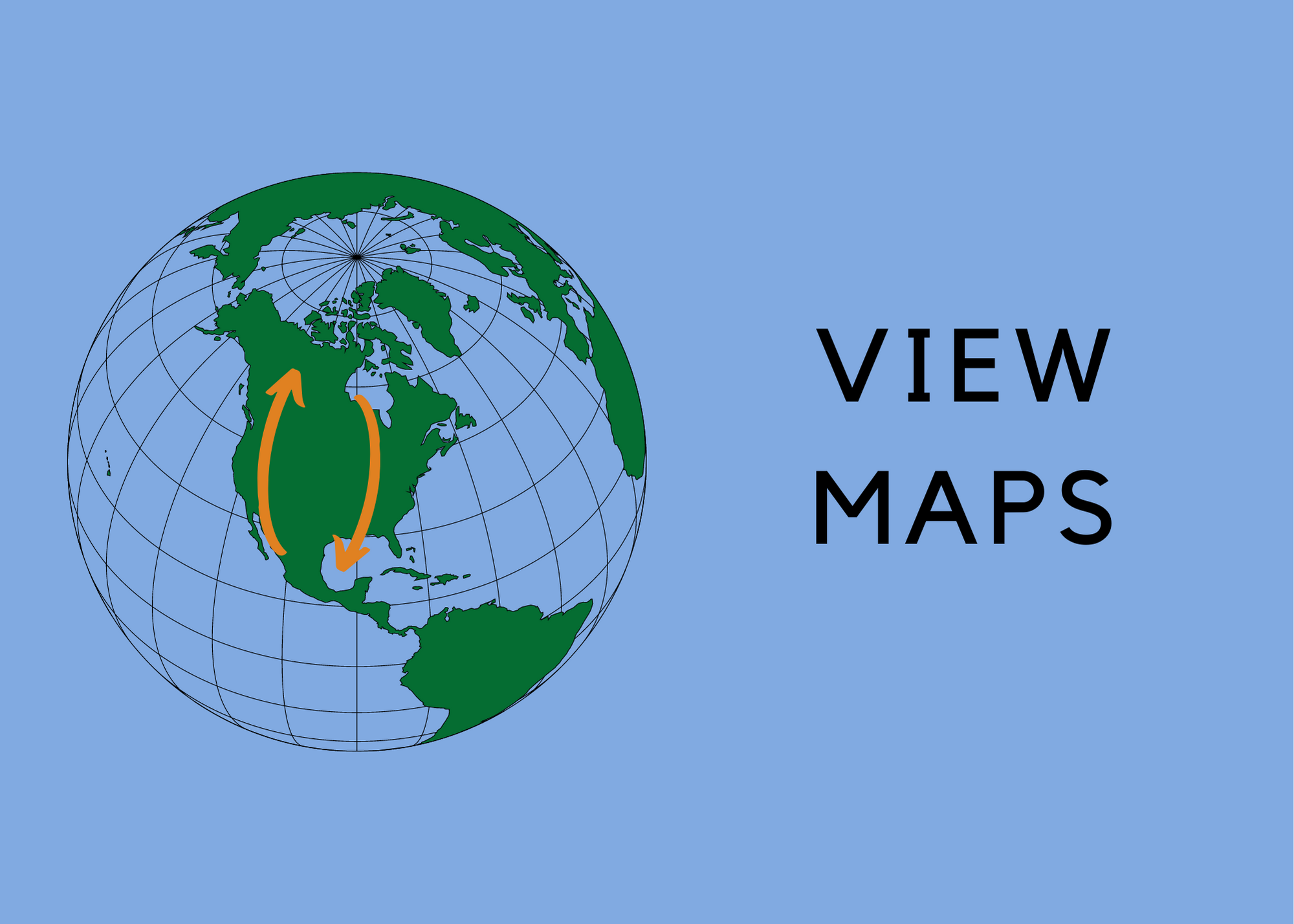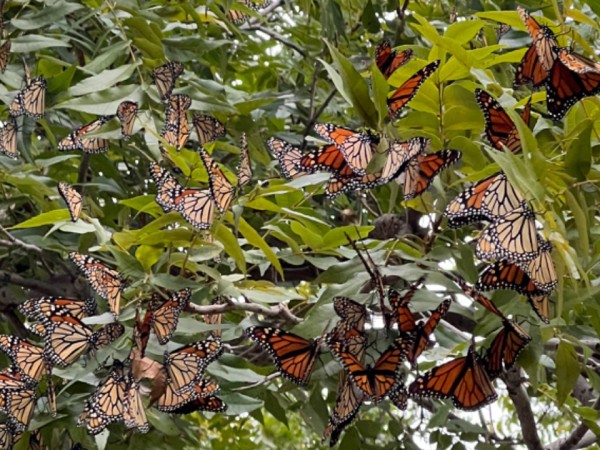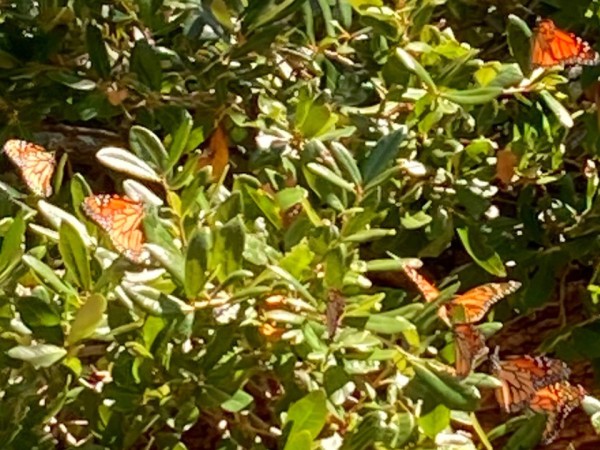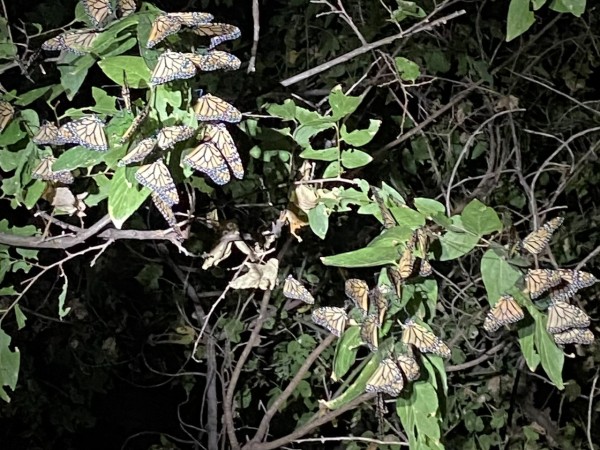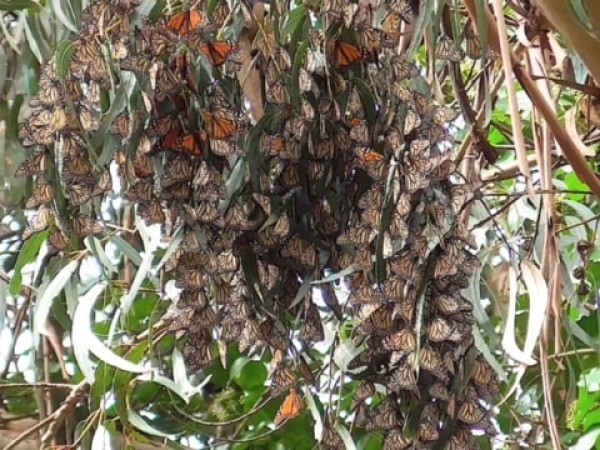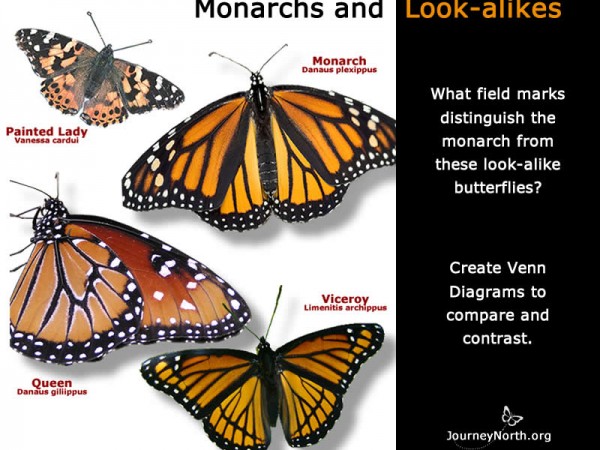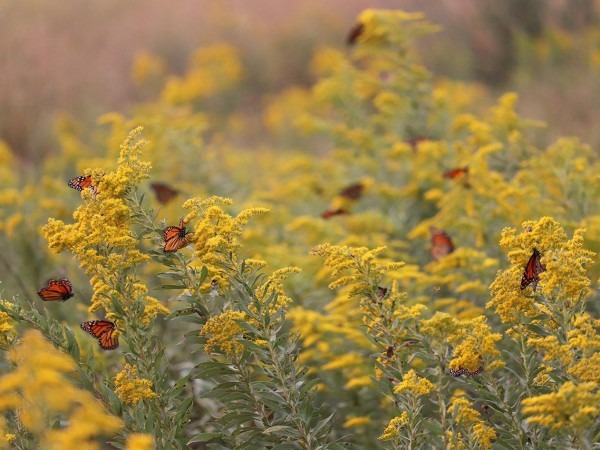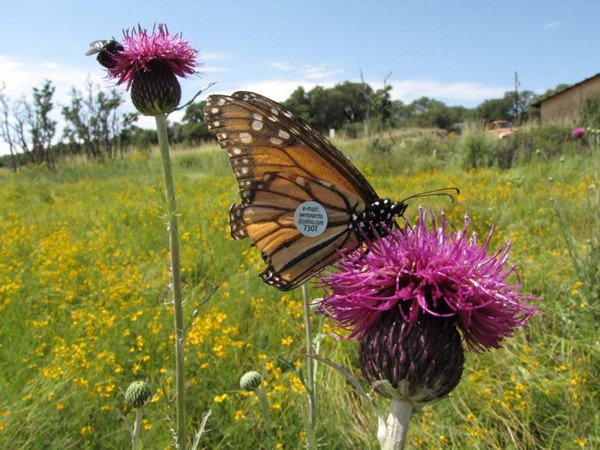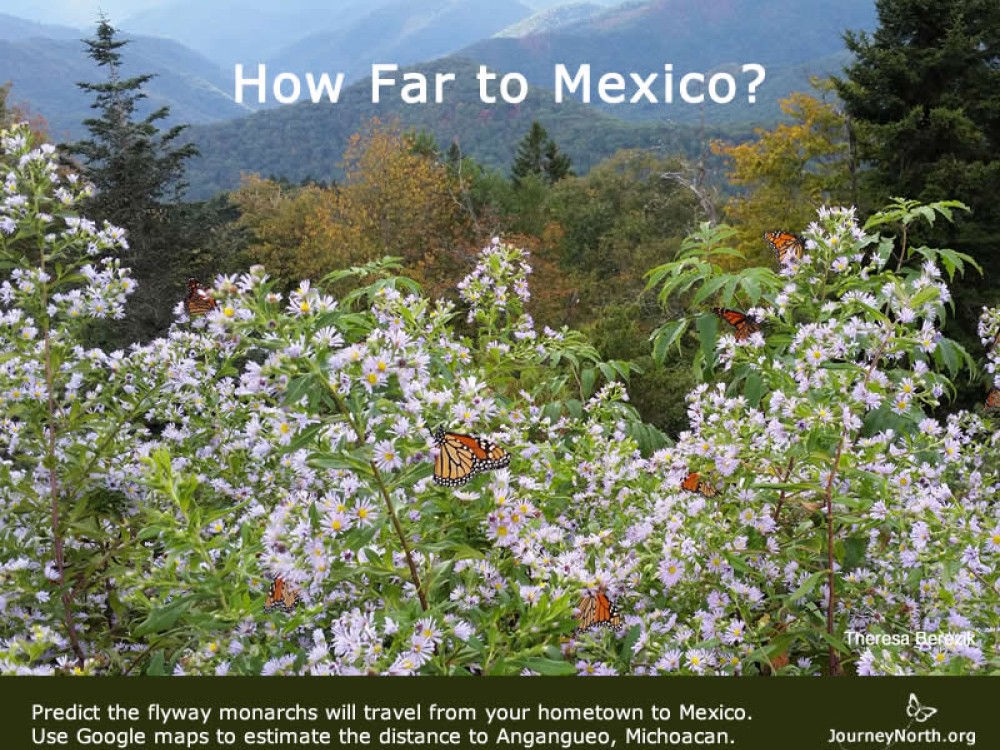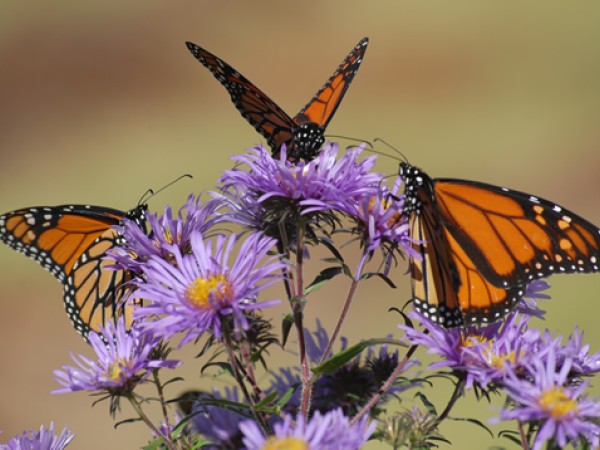Magical Migration
Fall migration is in full swing! Migratory monarchs are beginning to arrive in Mexico. Texas is a migration hotspot, and reports are picking up in the Southeast and along the Gulf Coast. Western monarch activity is also ramping up, and some monarchs have reached overwintering sites in California.
The Leading Edge of Migration
Exciting news! Cecilia Ochoa and Correo Real recently shared reports that may well signal the beginning of migratory monarchs entering Mexico. The numbers will greatly expand as migration continues – stay tuned!
Madribal Meza in El León, Coahuila: "I saw two [monarch] butterflies flying near a rivulet, it was a cloudy day, observation done at 4:00 pm." (10/05/2022)
Carlos Armendariz in Acuña, Coahuila: "Today I saw my fist couple of monarcas feeding on tithonia tubiformis. It was 10:25 partly cloudy Winds from SE 25km/h." (10/11/2022)
And more monarchs along the Central Flyway are on their way. Texas is a hotspot of migratory activity with peak migration events and fall roosts being widely reported. And along the Eastern Flyway, activity is picking up in the Gulf Coast region.
Betsy in Odessa, TX: "This is photo of one of at least 6 different roostings. Counted over 100 in this area; all in lower part of pecan tree near a pond. Other smaller roostings are are near a blue mist patch and in a pine tree near a pollinator garden. Mild day; breezy. Beginning to rain at 8:00pm." (10/09/20220)
Brian in Point Clear, AL: "Counted ~250, likely many more on the property at The Grand hotel in Point Clear. Most were nectaring on bottle brush or roosting in nearby live oaks to stay out of the mid-day wind. Still peak migration." (10/10/2022)
Western monarch activity is also ramping up, especially in California as monarchs begin to arrive at overwintering sites. The excitement felt by Journey North volunteers is palpable!
Michael in Sonoma, CA: "Two adults at backyard tithonia; first multiple sighting in several years!" (10/09/2022)
Eastern Monarch Population
Eastern Monarch Fall 2021 Report #3
Fall roosts and peak migration events are on the rise in Texas. Despite cooler temperatures and shorter daylight length that October brings, Journey North volunteers in the Upper Midwest and Southeast Ontario, Canada are still observing monarchs. And throughout the Eastern Flyway, the pace of migration is picking up, particularly in Appalachia, the Southeast, and along the Gulf Coast.
Read more of the Eastern Monarch Fall 2022 Report #3»
Western Monarch Population
Letter from Gail Morris: Western Monarch Fall 2021 Report #3
Out West, monarchs are beginning to arrive at overwintering sites in California, and migratory activity is increasing in Arizona. Gail Morris writes, "Monarch sightings expanded over most of the West this week, especially through gateways into California to the overwintering sites. Arizona had several sightings as well with some monarchs likely on their way to Mexico. Earlier years maps were often void of sightings in the West, but this year more and more monarchs were reported during this critical time of the annual fall migration."
Read more of Gail Morris’ Letter: Western Monarch Fall 2022 Report #3»
Watch for Monarch Look–Alikes and Keep Reporting
Behind the scenes, Journey North staff try to review every observational report that is submitted by our volunteers. During monarch fall migration, we pay special attention to reports of peak migration events. We often reach out to volunteers to request additional information and photographs. We also call upon monarch experts who aid in our understand of migration activity. This past month, we have had lively debates about sightings of peak monarch migration activities in Mexico – well in advance of historical trends. Turning to our volunteers and partners, we concluded that some of these reports likely referred to observations of American snout (or common snout) butterflies (Libytheana carinenta) – alas not monarch butterflies. The American snout shares some similar coloration with the monarch. But, upon close examination, the America snout is very different. Take a look at this factsheet created by the Alabama Butterfly Atlas: The American Snout.
There is always something new to learn. We are so grateful for your participation as we work together to document monarch migration.
Please keep reporting!



